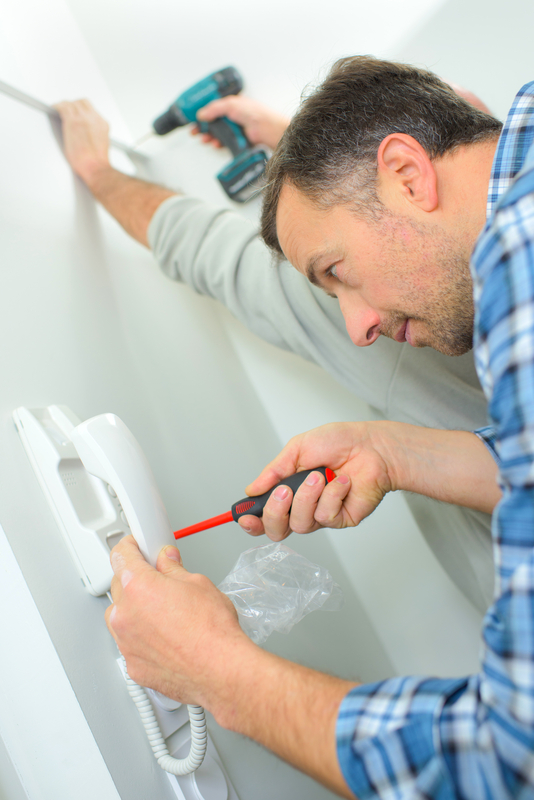
Intercom Systems: Choosing a System for Your Business
Intercom systems are excellent for commercial properties that need to secure the premises so only authorized individuals are allowed on-site, or to keep track of a visitor log and provide better security for the community or business within.
These systems come as outdoor or indoor models with a wide range of features. The technology that supports an intercom system has come a long way in just the last few decades, making it an essential part of any business’ communication.
In this article, you will learn everything about how to choose the right intercom system for your business, as well as the differences between common commercial systems.
How Does an Intercom System Work?
An intercom system works a little differently depending on the information it must relay and the type of installation. All intercoms, however, have the same basic principle: they allow an individual to communicate easily through the device to another section of the building or property. (1)
If you have devices in different rooms of your home, you can use Drop In like an intercom system to “drop in” and let the kids know dinner is ready.
— HuffPost
This is only recently becoming more popular with residential buildings through smart devices, but most commercial businesses rely on these intercoms for communication with certain departments and as a way of securing the premises by granting entry to authorized individuals.
Any standard intercom will transmit audio from one place to another. Some intercoms also allow the user to transmit video information or verify their identity through a range of authorization types. Sometimes intercoms act as access keypads to authorize entry by showing an identification card or inserting a ticket into the machine. Other times, it could be used with biometrics.
On the commercial level, an intercom system is typically wired to provide stable and more reliable connection to the master station. If this isn’t possible, however, the intercom may be wirelessly connected.
Wired intercom systems are the most reliable and most difficult to tamper with as they transmit information securely through physical wiring. Each access point where an individual is granted access or communicating – called a substation – sends these transmissions directly to a master station. The individual at the master station can then verify the individual or communicate back to them.
A classic example of this is a residential condominium. At the condominium entrance, a visitor doesn’t have keys to the building, but is here to visit unit 204. They press the 204 button on the intercom, and in unit 204, the intercom buzzes. If a speaker is at the entrance, the visitor can also state who they are and why they are visiting. This audio signal transmits directly to unit 204, where they can press a button to unlock the entrance and grant the visitor access. See our guide to telephone entry systems here: https://4ssgtech.com/the-ultimate-guide-to-a-telephone-entry-system-for-business/
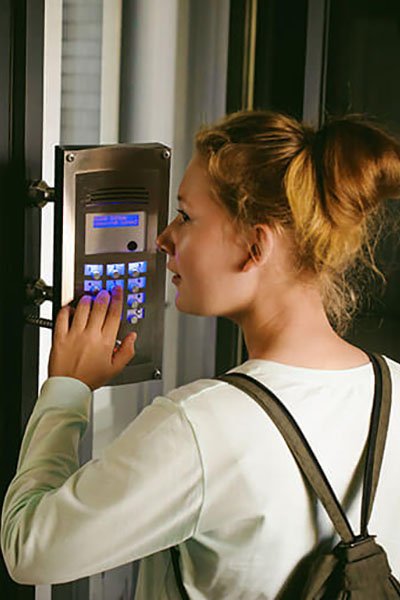
What Are the Different Types of Intercoms?
There are many different types of intercom system for both residential and commercial applications. Out of 8 common types, two are most specifically tailored to apartment complexes and residential buildings.
This includes the audio intercom which is typically used for buzzing in guests and tenants in smaller apartment buildings and residential homes. The other is an apartment intercom which controls the door releases in specific apartment buildings, most often used in condominiums or other high-tenancy buildings. Tenants can connect to these intercom systems remotely via smartphone or use a substation inside their apartment.
Most businesses, however, opt for the commercial intercom system because it is more reliable and often suited to the business’ applications.
By providing more security in a commercial setting, these intercom systems help businesses make the most out of these technology systems, combining several functionalities into a single secure device. With 6 types of intercom systems left, however, it can be difficult to make the distinction between which one is right for your business’ use case.
Fortunately, the choice is made easy with options that are available locally. All the choices available should be commercial-grade to ensure that it can be secured and is designed for high foot traffic or reliable round-the-clock operation.
Below are the different types of commercial intercom systems most commonly available to businesses:
Are There any Wireless Intercom?
Yes, there are wireless intercom systems. These systems can be placed anywhere in the building where they can receive radio band frequencies. Typically, these low frequencies are sufficient to transmit both video and audio, allowing staff to effortlessly communicate with each other without use of phone systems or internet calls. These intercoms are most commonly used indoors, but some models can be used outdoors under protected conditions, such as under a porch awning or enclosed entryway.
These systems are most popular for businesses that cannot install wiring throughout the building to accommodate an intercom system. Whether it is too difficult, too expensive, or against the building’s lease to install this wiring, wireless intercom systems provide a helpful solution.
Depending on your provider, these intercom systems might go down if the internet does. Many businesses either have a backup network in place to prevent this or install an intercom system that can also run off a commercial-grade cellular network.
If the wireless system relies on a 4G or 5G network signal, it’s important to test the signal wherever you are placing each intercom system to ensure it can receive a reliably strong signal throughout the normal working day. If possible, connecting a wireless intercom system directly into the source with a ethernet cable can ensure a stable and reliable connection at all times.
Hard-Wired Systems
All types of hard-wired systems require some type of wiring to connect it to the appropriate device. For example, intercom systems that control a door lock may only need to be wired locally to the door, requiring a few feet of wiring at most. Other intercom systems that support audio or video communication with a specific office unit or individual, however, will require wiring throughout the building to a master station that controls where the frequency goes.
While hard-wired systems are difficult to install and can be costly to upgrade, they are capable of more advanced features and are typically more reliable than wireless or other types of intercom systems. For high-priority communication or security measures that could reduce costs in other departments, it’s important to choose a hard-wired system that has a backup option in case the electricity or internet is disconnected at any time.
Many businesses still have hard-wired systems in their building, however, more are moving towards wireless for the internet-based flexibility and cost-effective solution it provides.
Use of wireless systems is projected to eclipse hard-wired systems within the next few years. While hard-wired systems will continue to be supported and still provide a more stable connection, the cost-prohibitive nature makes it best used for high-profile security solutions.
Mobile Connected Intercoms
Many intercom systems offer mobile connectivity, working from a cellular network instead of an internet or ethernet connection. These intercom systems are flexible, but utilize a lot of bandwidth on the network. It is best if these are utilized only on a commercial-grade cellular network.
Once set up, these mobile-connected intercoms make an excellent entry point for remote workers. Employees can link their work phone to the intercom frequency so they can use their device as a type of handheld intercom system to communicate with visitors or other employees.
These mobile connected intercoms are an excellent way to connect workers who don’t necessarily work at a stationary desk and roam the property as a part of their job. While not all businesses benefit from this specific use case, it provides a much-needed alternative to internet or wired connectivity, reducing the business’ reliance on these two modes of transmission.
Mobile connected intercoms are by far one of the least widely used types of intercoms because of their specific benefits, but there are many businesses that still rely on these systems.
Automatic Gate Entry Intercom Systems
Automatic gate entry intercoms are perhaps one of the most famous of all intercom systems, featured in movies and television shows alike. These gate entry intercom systems are installed outdoors on residential or commercial gate systems.
This type of intercom allows passage of both pedestrians and vehicles after confirmation of their identity. This is excellent for ensuring parking spaces are paid for or keeping track of visitor logs.
The intercom works by transmitting information from the substation – where the pedestrian or vehicle is entering information – into a master station. At this master station, an individual mans the intercom and can speak to the guests if necessary. Multiple substations can be placed throughout the property, all connected to a single master station if needed. This is a popular way of installing intercoms throughout garages, typically as wired intercoms to ensure that the transmission is reliable no matter when guests are exiting or entering the space.
This type of intercom system is designed to be used in an outdoor, covered environment such as within a parking garage or under an awning. Some models may be able to withstand harsh outdoor conditions uncovered. These intercom systems are commonly installed for gated communities, industrial properties and in parking garages to keep track of entry and exit.
Carrier-Current Type Intercoms
Carrier-current intercoms are one of the lower technology intercoms available on the market today. It is considered the least secure, so it is important to make sure these units are not intended to grant access to any type of property automatically, and only used for bare minimum level of communication.
In the late 90s, these types of intercoms were in frequent use, but they have all but disappeared. These units may still be in use in older apartment buildings and commercial settings that don’t require an updated system.
These units use an AC electrical system to produce AM radio signals. The radio signals transmit to the corresponding unit. Unfortunately, because of the unstable medium-frequency signal, the audio that goes through this type of unit is not very clear. It does, however, provide a basic means of communication for basic workplace needs.
This type of unit is easy to install and integrates with the internal electrical wiring of the building, rather than working on its own wired transmission cables. These units are also easy to repair or replace, making them a budget-friendly option for commercial spaces that aren’t concerned with the intercom system providing additional security measures.
Today, fewer carrier-current type intercoms are relied upon in the commercial setting, and many are moving towards wireless intercom systems as this type of system becomes more accessible with more stable internet and cellular connections.
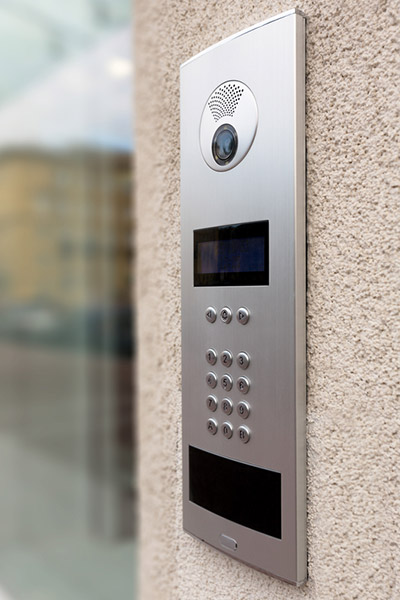
Which is the Best Intercom System?
The best intercom system is going to be one that suits your company’s needs best and works reliably based on your company’s current size. The intercom system should also be scalable with your company’s projected growth and allow you to cut costs in other departments while improving security and communication across the property.
It sounds like a lot to promise, but there is no one intercom system that is superior to all the others. Each model is designed for a different use-case that can be tailored to your business’ needs for both features and installation method.
Much of the selection happens at the company-level, after a consultation with a representative of SSG Technologies. Our team will help your business establish the right intercom system based on your needs, without requiring your team to know about any of the more technical details.
To learn more about each of the intercom systems that could benefit your company, talk to one of our team members at SSG Technologies by either email or phone. We’ll help you learn more about each system’s requirements and features so you can make a more informed decision to improve your company’s workflow and outpace the competitors at any scale.

Features to Look for in an Intercom System
You should always look for features in an intercom system that help improve the quality and ease of doing business. No matter what the priority is, whether it is for efficient communication or additional security on the premises, a quality intercom system can help establish a greater standard of operation.
Security is arguably the top factor to consider when installing a new system or upgrading an old one. New technology is helpful, but it doesn’t guarantee that previous ways of tampering with the system won’t work with a new system. Many systems work on the same frequency or transmission line.
At SSG Tech, we pride ourselves in providing the most secure intercom systems on the market, testing each unit during installation to ensure that the same old tricks won’t work with your new system, giving you all the benefits of an upgrade along with peace of mind.
Before purchasing and installing an intercom system, always talk with the technician to ensure that the product can be installed as-is in the building. If not, you will need to create an installation plan based on the requirements of the intercom system.
A popular feature that has been recently integrated into many business’ systems is the ability to access intercoms remotely. With more individuals working from home, it’s important for businesses to accommodate remote access without compromising security. This allows the remote worker to do their job more efficiently without needing to work from the office.
Scalability is also something important to consider, especially if your company is forecasting a growth period. As the company grows, the intercom system should be able to scale with your needs without major installation work.
An example of this is that many intercom systems fail to work as reliably as the company grows because of the higher number of transmissions. Even without upgrading, the intercom system should be able to handle multiple requests simultaneously, rather than being on a single network like a residential intercom might be.
Video Intercom is a Great Investment for Commercial Security
An old, outdated intercom system isn’t necessarily secure. A lot of individuals can access these older systems by tapping into their critical components at one of the accessible substations. (2) A lot of companies attempt to upgrade the internal components of their substations to prevent this kind of tampering, but it is never enough, as these individuals always find clever ways to bypass the system.
“All of the high-security door locks, deadbolts, advanced RFID key fobs, cameras, key control, and sophisticated access control systems for any building are essentially meaningless if any of their critical components are protected by a low security device that will allow access to the control electronics at the heart of the system.”
—Forbes
A method that has been proven effective in preventing this kind of tampering, however, is the use of video intercom systems. This highlights the security part of the system so well that it deters tampering from the start.
Including an intercom system that has a video surveillance system installed also reduces the need for a secondary surveillance system at the entrance, reducing company costs and increasing reliability. It also helps security establish who was – and was not – present at the building at the time of any reported incident. This not only reduces the amount of time required by the investigation, but also protects employees from potential harm from unauthorized visitors and unsecure access points.
See our article about video intercom systems here: https://4ssgtech.com/video-intercom-system-for-your-business/
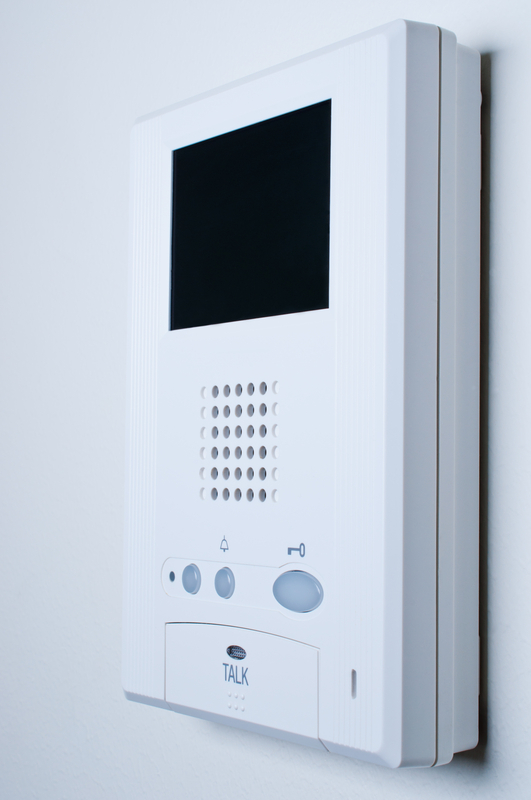
How Much Does It Cost to Install an Intercom?
The installation cost for an intercom depends on several factors. First, the individual intercom substations must be ordered, along with the corresponding master station. This material cost alone can cost anywhere from $1,000 to $5,000 depending on the unit and the features it provides.
Installation costs are typically separate and depend on the type of intercom and property layout. The labor required might be testing wireless signal strength and installing a unit to a wall or could include re-wiring the whole building if you are installing a new wired system.
When everything is said and done, a typical audio-only intercom system in a commercial setting can cost anywhere from $1,500 to $8,5000. If you are looking to install intercom systems with the latest technological advancements, such as video and ultra-secure model designs, the intercom system could cost the company $10,000 and up.
Fortunately, intercom systems don’t need to be replaced often, and at SSG Technologies, we offer extended support for building access and intercom systems throughout the Washington and Baltimore metroplex region.
It is always best to get a quote from a reliable technician and learn the ins-and-outs of the terminal before committing to a new intercom system. By ensuring the company receives an ROI or projected savings on security and communication, you can offset the overall costs of the intercom system.

Benefits to Installing an Intercom System for Businesses
No matter what industry your business is in, an intercom system can help you communicate with your team and ensure the security of the premises. (3) Your company deserves top-of-the-line quality equipment to match your cutting-edge services and products.
We recognized that an intercom at the front entrance is only one aspect of property access management and that the rest of a building also needs secure, convenient access control.
— Entrepreneur
Overall, intercom systems can provide a wide range of benefits to the business, ranging from HR disputes and payroll tracking by ensuring employees are arriving on time, to security concerns such as limiting visitor access and connecting employees with others across the building. Authorizations can be customized to suit the company needs, requiring employees to scan an ID badge, offer biometric data, or simply dial on a keypad while the system records visual data.
The modern-day intercom system has come a long way since it was first invented at the turn of the 19th century.
A good, quality intercom system not only looks sleek, but also raises employee morale. By limiting visitor access and ensuring the safety and security of employees throughout their working day, you can count on their increased productivity as they feel safer and more relaxed at the workplace.
While each intercom system comes with its own set of features and technology, most systems can be custom-fitted to your property based on your business’ needs. Whether you are looking to interconnect the office communication or keep a visitor log for multiple businesses, SSG Technologies can help you. Give us a call today and learn more about intercom systems that are currently available in your area.
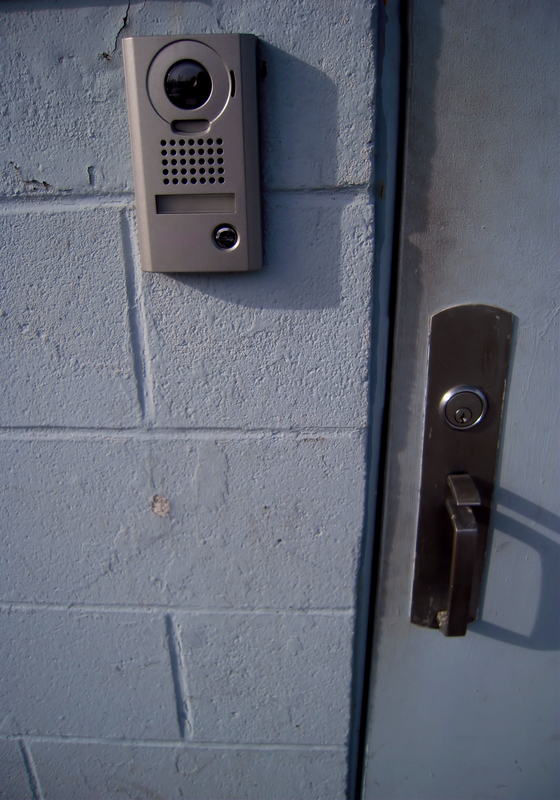
Requirements for a Commercial Intercom System
Any time you upgrade or install a commercial intercom system, it’s important to consider the requirements for your company, as well as whether the property can accommodate the requirements of the system itself.
Many companies choose an intercom system without first considering the needs of the intercom system, only to experience delays and budgetary setbacks later. One major example of this is purchasing a wireless system before understanding the signal strength at any given location is not reliable enough to support the intercom. Alternatively, installing a wired system without considering the need to install wiring throughout the building can be a setback both in time and budgeting.
First, an intercom system must be able to support the number of individuals on the property. If the intercom system is only meant to be used for low-traffic or infrequent use over a single system, it may become unreliable as too many access requests go through the system at once. This is in stark contrast with a residential system that only needs to provide access one-at-a-time over a single system.
Secondly, it should provide the security you need while remaining within reach for the company itself. For example, an intercom system that must verify the user’s identity should be able to quickly and reliably grant access.
This requires that the company has the intercom installed with a secure connection to the master station. It is also important that, no matter the type of intercom, it has a secure connection and tamper-proof safeguards against physical security bypasses.
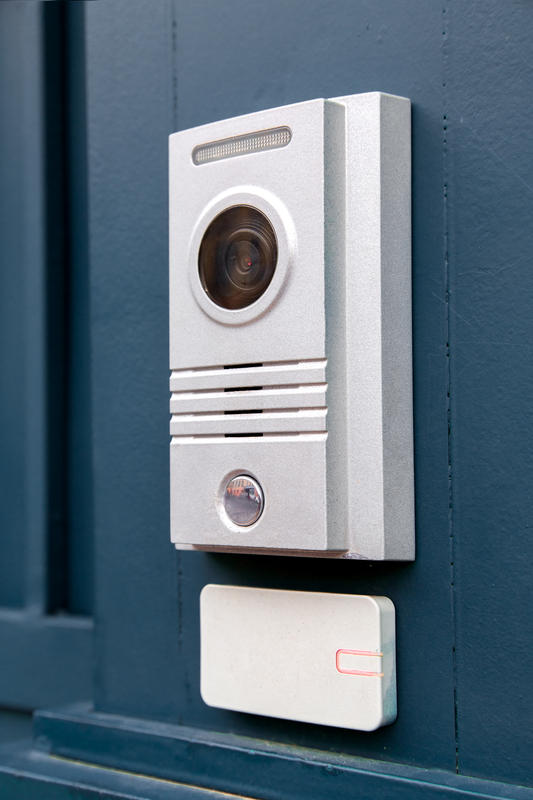
SGG Technologies Provides Local Intercom Services
From voice to video surveillance and building access to intercom systems, if it helps your business connect and communicate, then we’re here to help. We have the expertise necessary to help you choose the right system for your business, install it correctly, and provide extended support over the lifetime of your business.
We help you get your business up and running so you can do good. Talk to a representative today by calling or emailing our team.
References:
1. HuffPost.com, Buying Google Home or Amazon Echo This Year? Here’s What You Need to Know, https://www.huffpost.com/entry/buying-google-home-or-amazon-echo-this-year-heres_b_5a14abf1e4b009b331ad7592
2. Forbes, Building Entrance Security Can Be At Risk from the Locks on the Intercom System Cabinets, https://www.forbes.com/sites/marcwebertobias/2021/04/19/building-entrance-security-can-be-at-risk-from-the-locks-on-intercom-system-cabinets/?sh=51de5d3c3399
3. Entrepreneur, 5 Ways to Tell if Your company Should Start Offering a New Product, https://www.entrepreneur.com/growing-a-business/ready-to-offer-a-new-product-ask-yourself-these-5-questions/432424
